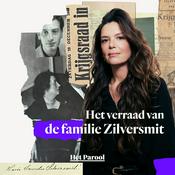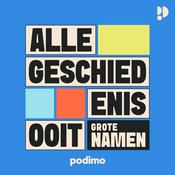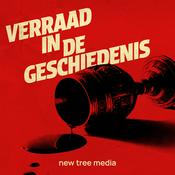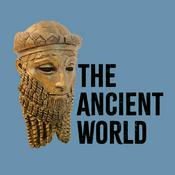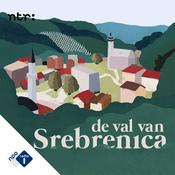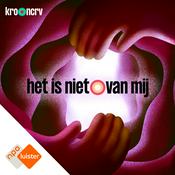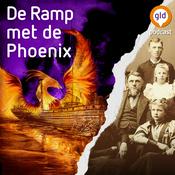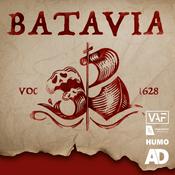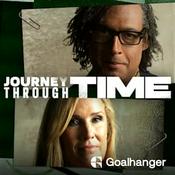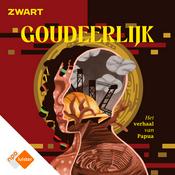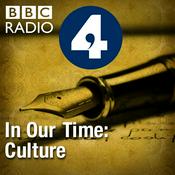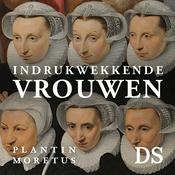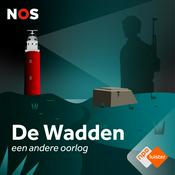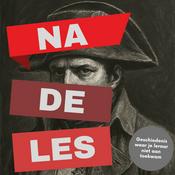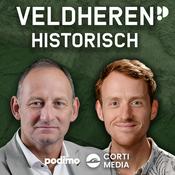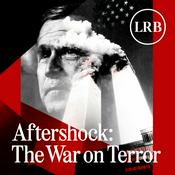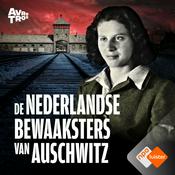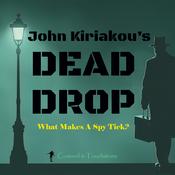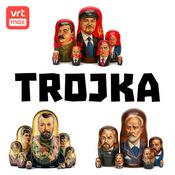LAMMIE, De Hasjkotter (verbeterde versie 2024)
Rik Bouman
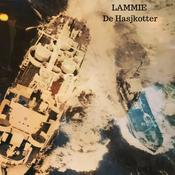
Nieuwste aflevering
69 afleveringen
Podcastserie: BOEGBEELDEN & BLIKTREKKERS - 175 JAAR KR&ZV De Maas. Aflevering 1: 175 jaar historie van De Maas (met Evert Jan van den Berg, Siep Wijsenbeek, interviewer Erik Peekel en Podcastmaker Rik Bouman)
16-2-2026 | 32 Min.De nieuwe podcastserie ‘Boegbeelden & Bliktrekkers’
Aflevering 1: 175 jaar historie van De Maas
(met Evert Jan van den Berg, Siep Wijsenbeek, interviewer Erik Peekel en Podcastmaker Rik Bouman)
In deze eerste aflevering van ‘Boegbeelden & Bliktrekkers’ duiken we in de rijke geschiedenis van de Koninklijke Roei- en Zeilvereeniging De Maas, één van de oudste en meest iconische watersportverenigingen van Nederland.
Presentator Erik Peekel gaat in gesprek met Evert Jan van den Berg en Siep Wijsenbeek. Podcastmaker Rik Bouman zorgt voor de juiste uitwerking. Hoe zag Rotterdam eruit in 1851 en wat was de cruciale rol van Prins Hendrik de Zeevaarder bij de oprichting
In deze aflevering ontdek je:
De omzwervingen naar Katendrecht: Hoe de vereniging op Katendrecht belandde en hoe men daar vroeger vanuit de stad naartoe reisde.
De geboorte van een familievereniging: De roemruchte afsplitsing (en hereniging) van de 'Trekvogels' en de herkomst van de beroemde rode broek.
Veerkracht in oorlogstijd: De impact van de Tweede Wereldoorlog, het verzetswerk van voorzitter Willem Ruis en de wederopbouw na de bevrijding.
Of je nu een gepassioneerd zeiler bent, een fanatieke roeier of een liefhebber van de Rotterdamse historie; dit gesprek werpt een uniek licht op het DNA van 'De Maas'.
The podcast delves into the illustrious history of the Royal Rowing and Sailing Society de Maas, a venerable institution that has fostered connections between the city of Rotterdam and its waterways for an impressive 175 years. I engage in a comprehensive dialogue with esteemed guests Evert-Jan van den Berg and Siep Wijsenbeek, who elucidate the origins of the society and its architectural marvel. As we traverse the narrative of the society's evolution, we uncover its transformation from a modest rowing club into a social nexus for both rowing enthusiasts and the wider community. The discussion further illuminates pivotal moments in the society's timeline, including its adaptation during historical upheavals and its role in cultivating a familial atmosphere among its members. Ultimately, we reflect on the enduring significance of the society, underscoring the water as a persistent element that binds generations of members together in their shared passion for maritime pursuits.
An exploration of the Sociëteit van de Koninklijke Roei en Zeilvereniging de Maas, situated in the picturesque heart of Rotterdam, reveals a storied legacy entwined with the maritime history of the city. Established 175 years ago, this esteemed institution stands not merely as a club for rowing and sailing but as a cultural nexus where prominent figures converge, fostering both athletic and social endeavors. The episode features an enlightening dialogue between Erik Pekel and his guests, Evert-Jan van den Berg and Siep Wijsenbeek, as they delve into the origins and evolution of the association, illuminating the architectural significance of its clubhouse, designed by the renowned architect Jürgen Stihl. The discussion traverses the transition from modest beginnings to the establishment of a prominent societal fixture, emphasizing the dual role of the building as a venue for sporting excellence and a social gathering place for the community. The conversation also encapsulates the architectural nuances of the clubhouse, highlighting its Art Deco influences and the striking green roof, a unique feature that enhances its visibility from the water. The guests elucidate the rich tapestry of...Derde Ronde van Los Angeles van 1932 tot 2028: Aflevering 23: Wat gebeurde er allemaal bij de de eerste vier Olympische Winterspelen?
15-2-2026 | 12 Min.Aflevering 23 met de eerste vier Olympische Winterspelen!
The primary focus of this podcast episode is the inaugural Olympic Winter Games held in 1924 in Chamonix, France, which emerged as a significant milestone in the history of winter sports. Initially conceived as a subsidiary program to the Summer Olympics in Paris, the games garnered such acclaim that they were retroactively labeled as the first Olympic Winter Games after the Norwegian objection was withdrawn. The episode delves into the notable achievements of athletes, particularly highlighting Norway's dominance in skiing and skating, while also recognizing the participation of other nations and the unique circumstances surrounding the event. We examine the statistics of participation, including the stark gender disparity among athletes, and reflect upon the evolving nature of the Winter Olympics as subsequent events unfolded. Furthermore, we discuss the broader implications of these games in the context of international sports and their legacy, setting the stage for future competitions. The exploration of the inaugural Olympic Winter Games, which took place in Chamonix in 1924, unveils a historical tapestry woven with both triumph and contention. Initially conceived as a supplementary event to the Summer Games in Paris, the Winter Games garnered such remarkable success that they were retroactively declared an official Olympic event, contingent upon the withdrawal of objections from Norway, which had its own winter sports competition. This episode meticulously details the geopolitical landscape of the time, highlighting how the absence of notable nations such as Russia, Germany, and the Netherlands shaped the competitive field. The narrative further delves into the performances, with Norway emerging as the dominant force, claiming the majority of the medals, while the dynamics of participation and competition are examined through the lens of the limited number of athletes and nations present. This foundational moment sets a precedent for future Winter Games, illustrating the evolution of winter sports on a global stage. In a reflective analysis of the first Olympic Winter Games, the conversation meanders through the complexities of sportsmanship and national pride, emphasizing the significance of Chamonix as a pivotal location in Olympic history. The episode elucidates the cultural ambiance of Chamonix, described as a fashionable winter resort, juxtaposed against the backdrop of sporting excellence and national representation. The dialogue also touches upon the peculiarities of the early Winter Games, such as the introduction of sports like figure skating and ice hockey, which had previously been included in the Summer Games. The intriguing case of Kylis Krevstem, who uniquely defended his title from the Summer Olympics, serves as a focal point of discussion, highlighting the interconnectedness of winter and summer sports in this nascent period of Olympic competition. Through a serious and analytical lens, this summary encapsulates the essence of the episode, articulating the multifaceted themes of competition, culture, and the socio-political undercurrents of the time. The examination of the evolution of the Olympic Winter Games from their inception in 1924 to subsequent iterations reveals a narrative rich in historical significance and transformation. The podcast delves into the intricacies of the Chamonix Games, the subsequent Winter Games in St. Moritz, and the implications of the Lake Placid Games, all while emphasizing the growth of participation and the increasing prominence of female athletes. Notably, the transition from a predominantly male-dominated field to the inclusion of women in competitive events is articulated with a focus on the societal shifts that accompanied these changes. The episode critically evaluates the implications of the American dominance in Lake Placid, where the competitive format sparked controversies regarding fairness...TRAILER van de nieuwe podcastserie: BOEGBEELDEN & BLIKTREKKERS - 175 jaar KR & ZV De Maas
11-2-2026 | 5 Min.U kunt nu al luisteren naar de trailer van de geweldige nieuwe podcastserie:
BOEGBEELDEN & BLIKTREKKERS - 175 jaar KR & ZV 'De Maas'
Vanaf 17 februari kunt u luisteren naar de eerste aflevering van deze serie van acht!
De omzwervingen naar Katendrecht: Hoe de vereniging op Katendrecht belandde en hoe men daar vroeger vanuit de stad naartoe reisde.
De geboorte van een familievereniging: De roemruchte afsplitsing (en hereniging) van de 'Trekvogels' en de herkomst van de beroemde rode broek.
Veerkracht in oorlogstijd: De impact van de Tweede Wereldoorlog, het verzetswerk van voorzitter Willem Ruis en de wederopbouw na de bevrijding.
Het geheim van de World Rowing Masters: Hoe Jan en Frank met overmacht goud wonnen in Spanje en wat de sfeer op dit ‘WK voor veteranen’ zo uniek maakt.
De kracht van vriendschap: Hoe ze na een pauze van 40 jaar de draad weer oppakten en direct weer de snelsten bleken te zijn.
Trainen op de Willem-Alexander Baan: De rust, de focus en het belang van een strak trainingsschema, zelfs als master-roeier.
De essentie van ROST: Hoe een opleidings- en prestatieteam jonge zeilers klaarstoomt voor het zware offshore werk.
De strijd om de Admiral’s Cup: Een blik achter de schermen bij het officieuze wereldkampioenschap offshore zeilen en de sfeer in het iconische zeilersdorp Cowes.
Triomf in de Fastnet Race: De beleving van een start tussen honderden boten en het magische moment van de overwinning in Cherbourg.
De geschiedenis van Maas Nieuws: Van handgezette teksten en fysieke knipsels tot de impact van digitale fotografie.
Het maakproces: Over de stress van de deadline, het plezier van de vormgeving en de bijzondere samenwerking met de drukkerij.
De iconen achter het blad: De onmisbare bijdrages van namen als Ferry Boogaerdt ’t Hooft, Meinard Sprenger en Kees van Hussen.
De weg naar de top: Hoe Marieke als jong talent bij De Maas begon en werd gecoacht door Thomas Notermans.
Tokio 2020: De spanning van de lichte dubbeltwee, het roeien in coronatijd en wat die laatste 250 meter haar hebben geleerd over topsport.
De toekomst is Coastal: Waarom de nieuwe discipline Coastal Rowing de roeisport verandert en of we Marieke terugzien op de Spelen van Los Angeles 2028.
De sprong in het diepe: Waarom Aad en Hella in 1974 alles achterlieten om met de Aldebaran de Atlantische Oceaan over te steken.Derde Ronde van Los Angeles van 1932 tot 2028: Deel 22: Worden het zes gouden medailles voor de Noorse Langlaufer Johannes Klaebo "De Komeet" ?
08-2-2026 | 17 Min.De Noorse Langlaufer Johannes Klaebo "De Komeet" gaat voor zes gouden medailles!
The primary focus of this podcast episode is the imminent commencement of the Olympic Winter Games, specifically highlighting the remarkable athlete Johannes Klaebo, who is poised to compete for six gold medals. As we delve into the intricacies of Klaebo's illustrious career, we explore his extraordinary achievements, including his unprecedented victories in World Cup events and his outstanding performance at the recent World Championships. Our discourse further examines the unique qualities that render Klebo a formidable competitor, such as his innovative techniques and strategic prowess in cross-country skiing. We also discuss the various disciplines in which he will participate, elucidating the challenges and expectations he faces in each event. Ultimately, we aim to provide our listeners with an insightful perspective on Klaebo's potential impact on the upcoming Games and the broader implications for the sport of cross-country skiing. The 22nd installment of our esteemed podcast delves into the imminent commencement of the Olympic Winter Games, scheduled to begin on February 6th in Milan. As we stand on the precipice of this grand sporting event, it is only fitting that we engage with the current affairs surrounding the Winter Olympics. In the ensuing episodes, we will dedicate our discussions to various facets of the Winter Games, with a particular focus on prominent athletes and their performances. I wish to spotlight an extraordinary figure in the realm of cross-country skiing, known colloquially as 'The Comet'. This nickname belongs to Johannes Høsflot Klæbo, a 29-year-old Norwegian athlete who has garnered significant acclaim and is often regarded as the preeminent cross-country skier in the world today. His stature in Norway parallels that of the celebrated footballer Erling Haaland, and during the upcoming three weeks, Klæbo will undoubtedly be the center of attention as he vies for an astounding six Olympic medals across multiple disciplines. In our exploration of Klæbo's illustrious career, we uncover his remarkable achievements, which include an impressive 107 victories in individual World Cup events, complemented by five overall titles in the World Cup circuit. His prowess was further exemplified at the recent World Championships held in Trondheim, where he clinched six gold medals, drawing a staggering attendance of over 230,000 spectators throughout the four-day event. Such figures underscore the immense popularity and excitement surrounding cross-country skiing, akin to that of cycling, where the physical demands are considerable and the spectacle captivating. We also analyze Klæbo's rigorous training regimen, which is characterized by an unwavering discipline and an almost fanatical dedication to his sport. For instance, his summer training often takes him to Italy, where he engages in grueling roller skiing sessions, pushing his physical limits to attain peak performance. As we delve deeper into Klæbo's competitive strategy, we identify three pivotal elements that contribute to his exceptional skiing capabilities: his exclusive starting technique, tactical acumen, and innovative skiing style. Klæbo's approach minimizes vertical movement, optimizing energy retention and speed, while maintaining a perfectly balanced stance over his skis. His agility in navigating turns and executing rapid double pole pushes distinguishes him from his competitors. Moreover, his familial ties to the sport reveal a unique support system; his father serves as both his manager and chef, while his grandfather, at the age of 83, still fulfills the role of his coach. Such a familial enterprise not only highlights the personal investment in his training but also emphasizes the collective effort behind his success. Klæbo's assertion that 'only dead fish swim with the current' encapsulates his philosophy of challenging norms and striving for...The salient focus of this podcast episode is the remarkable athletic achievement of Bob Beamon, who set a world record in the long jump during the 1968 Olympics held in Mexico City. We delve into the intricate details surrounding Beeman's extraordinary leap of 8.90 meters, which not only surpassed the previous record by a significant margin of 55 centimeters but also stood unchallenged for over two decades. I recount the atmospheric conditions that contributed to this unprecedented jump, including optimal temperature and humidity, as well as the psychological pressure Beeman faced before making his attempt. The episode further explores the immediate aftermath of his jump, highlighting the astonishment of officials and spectators alike, as they grappled with the implications of such a groundbreaking performance. Ultimately, we reflect on the legacy of Beeman's achievement and its enduring impact on the world of athletics, setting the stage for future competitors striving to reach new heights. The discussion centers around the remarkable achievement of Bob Beeman during the 1968 Olympic Games held in Mexico City, where he set an unprecedented world record in the long jump. The episode meticulously details the circumstances surrounding this historic event, emphasizing the optimal conditions that contributed to Beeman's extraordinary performance. The speakers delve into the specifics of the jump, noting the atmospheric conditions, including temperature and humidity, which were deemed ideal for such an endeavor. Furthermore, they explore Beeman's background as a top athlete, having won 22 out of his last 23 competitions leading up to the Olympics, thus establishing him as a formidable contender. As the narrative unfolds, we learn about the atmosphere of anticipation and tension that enveloped Beeman as he prepared for his jump, culminating in a breathtaking leap that measured an astonishing 8.90 meters. The speakers articulate the disbelief that ensued among spectators and officials alike, as the optical measuring equipment failed to accurately record the distance due to the jump's extraordinary nature. They recount how a traditional measuring tape had to be employed to confirm the measurement, leading to a dramatic reveal of the new world record, which stood unchallenged for decades until it was finally surpassed in 1991. In addition to the technical aspects of the jump, the episode touches upon the broader implications of Beeman's achievement, including the psychological impact it had on the sport of long jump and the subsequent obsession among athletes to surpass the 8.90-meter mark. This historical narrative is interwoven with contemporary reflections on Olympic events, highlighting the potential for political and social dynamics to influence athletic participation in upcoming games, thus providing a rich context for understanding the significance of Beeman's leap in both sports history and Olympic tradition.
Takeaways:
In the 1968 Olympic Games held in Mexico City, Bob Beamon achieved a remarkable long jump of 8.90 meters, a record that stood for 23 years until it was surpassed in 1991.
The atmospheric conditions during Beeman's jump were ideal, including a temperature of 24 degrees Celsius and the maximum allowable tailwind, which contributed significantly to his performance.
Beeman, who was initially a favorite, had faced fierce competition from previous medalists in the long jump event, making his victory even more remarkable.
The measurement of Beeman's jump initially posed challenges due to the equipment's inability to register such an extraordinary distance, leading to a manual measuring...Meer Geschiedenis podcasts
Trending Geschiedenis -podcasts
Over LAMMIE, De Hasjkotter (verbeterde versie 2024)
**Show Notes:** **Duik in "Lammie de Hasjkotter",** de podcast die het meest gedurfde avontuur in de smokkelgeschiedenis ontrafelt. In maart 1974 zet de HD 160, alias Lammie, koers naar Libanon, met aan boord een bemanning van kleurrijke personages, elk met hun eigen geheimen en motieven. **Voordat Lammie de haven verlaat,** gonst het al van de geruchten. Wie wist er van deze riskante onderneming? De reis naar Libanon is allesbehalve gewoon, vol bizarre wendingen en tegenslagen. Maar het is de terugreis die de geschiedenisboeken haalt: een zenuwslopende achtervolging op volle zee door marine, douane en rijkspolitie te water. **En dan, plotseling, verdwijnt Lammie van de radar.** Wat is er gebeurd? Deze podcast duikt diep in het verhaal dat niet alleen een spannend zeeverhaal is, maar ook gezien wordt als het begin van grootschalige politieacties tegen drugssmokkel. **Hashtags:** #LammieDeHasjkotter #SmokkelLegenden #ZeeAvonturen #DrugssmokkelGeschiedenis #VerdwenenOpZee #PolitieactiesTegenDrugsPodcast websiteLuister naar LAMMIE, De Hasjkotter (verbeterde versie 2024), De Geschiedenis in 11 Fijne Feitjes en vele andere podcasts van over de hele wereld met de radio.net-app

Ontvang de gratis radio.net app
- Zenders en podcasts om te bookmarken
- Streamen via Wi-Fi of Bluetooth
- Ondersteunt Carplay & Android Auto
- Veel andere app-functies
Ontvang de gratis radio.net app
- Zenders en podcasts om te bookmarken
- Streamen via Wi-Fi of Bluetooth
- Ondersteunt Carplay & Android Auto
- Veel andere app-functies


LAMMIE, De Hasjkotter (verbeterde versie 2024)
Scan de code,
download de app,
luisteren.LAMMIE, De Hasjkotter (verbeterde versie 2024): Podcasts in familie


